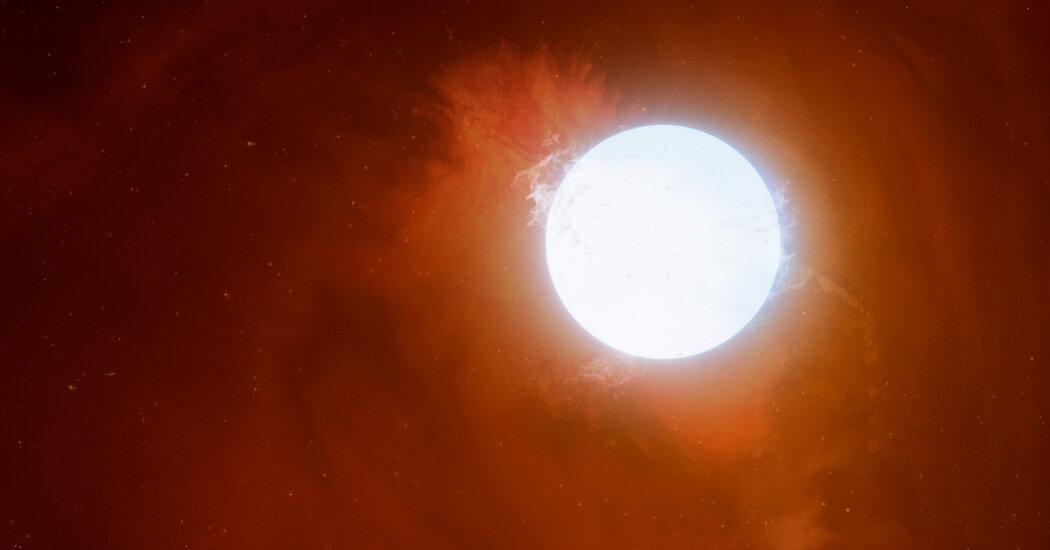Astronomers spotted a potential Earth-size rocky world orbiting a white dwarf, suggesting a future in which our planet outlives its star.
In six billion years the sun will expand into a red giant. That process should consume Mercury, and maybe Venus. For a long time we have thought it might incinerate Earth, too.
But perhaps all is not doomed for planet Earth (although it may be a world that will have long since become uninhabitable).
Scientists have discovered a rocky world orbiting another star that already went through its red giant phase. This planet now orbits a white dwarf, the smaller stellar body that remains after a star burns out. Crucially, the planet looks like it once orbited the star in the same position Earth currently travels around our sun, and did so until it was pushed to a more distant orbit, twice the Earth-sun distance, sometime before the dying giant could eat it. This makes it the first potential rocky world to be observed orbiting a white dwarf.
“We don’t know if Earth can survive,” said Keming Zhang, an astrophysicist at the University of California, San Diego, who led the work published on Thursday in the journal Nature Astronomy. “If it does, it’ll end up somewhere like this system.”
The planet is about 4,000 light-years away from us. It was discovered in 2020 with a Korean telescope network using a process called microlensing. The Korean team had watched as the planet’s star passed in front of another star, which from the background magnified the amount of light heading toward the telescope by 1,000 times.
This specific occurrence was a one-off event, limiting the chance for detailed follow-up observations until powerful new telescopes can better view the planet’s star in the future. But Dr. Zhang and his team were able to do additional work at the Keck Observatory in Hawaii last year and identify the star as a white dwarf.
